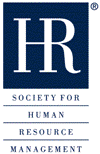Performance Reviews Often Skip Ethics, HR Professionals Say
Published 06-12-08
Submitted by Society for Human Resource Management (SHRM), The
PRNewswire-USNewswire - June 12/2008 -- In a new national survey, only 43 percent of human resources professionals said their organizations include ethical conduct as part of employees'performance appraisals.
In the study released jointly today by the Society for Human Resource Management(SHRM)and the Ethics Resource Center(ERC), human resource professionals said they are their organizations'primary resource for ethics-related issues,and they help create ethics policies.But most don't feel that they are truly part of the ethics infrastructure.Instead, they are just asked to "clean up" the situations caused by ethics violations.
The SHRM/ERC study, The Ethics Landscape in American Business,was conducted for the third time since 1997.It is the only measure of its kind--one that examines the attitudes of human resource professionals about ethics in their workplace.
"Human resource professionals are integral to the process of creating and maintaining ethical organizations--from helping to write ethics and compliance programs and procedures, to disciplining ethical breaches," said Susan R. Meisinger, SPHR, president and CEO of SHRM, the world's largest human resource organization. "Organizations can benefit by bringing HR professionals into the early conversations when planning
ethics-related programs."
Results of the study were compared, or benchmarked,to ERC's National Workplace Ethics Survey, a broader study fielded in 2007.The current SHRM/ERC study questioned 513 human resource professionals on six key business ethics themes, while ERC's poll surveyed 3,452 employees.
According to the SHRM/ERC study, only 23 percent of HR professionals say that their organizations have a comprehensive ethics and compliance program in place, and 7 percent report that their employer has no program at all.The Federal Sentencing Guidelines for Organizations(FSGO) define a comprehensive ethics and compliance program as one that includes six components:
- Written standards of ethical workplace conduct
- Means for an employee to anonymously report violations of ethics standards
- Orientation or training on ethical workplace conduct
- A specific office, telephone line, e-mail address or Web site where employees can get advice about ethics-related issues
- Evaluation of ethical conduct as part of regular performance appraisals
- Discipline for employees who commit ethics violations.
"Establishing a comprehensive ethics program is the foundation for building a strong ethical culture in any organization," said Dr.Patricia Harned, president of the ERC."Since HR professionals are partners with ethics and compliance officers in building and maintaining a culture of integrity, it's disappointing that less than one-quarter of them indicate that their organizations have established a full program.
"But it is reassuring to see that 82 percent of HR professionals said they reported ethical misconduct when it was observed,compared with 61 percent of employees."
The study found that when HR professionals did not report wrongdoing, it was typically because they didn't think they could remain anonymous, nor did they think that the people involved would be disciplined. Having a comprehensive ethics program addresses those concerns.
A decade ago, in the first SHRM/ERC survey,79 percent of HR professionals said they reported misconduct they had observed. In 2003--after 9/11 and the fall of Enron--that number dropped to 73 percent.
Key findings in the survey:
- Ethical misconduct most commonly identified by HR professionals included abusive or intimidating behavior toward fellow employees, plus abuse of e-mail or Internet privileges.Employees (U.S. average) cited instances of colleagues calling in "sick" inappropriately, and people taking credit for someone else's work.
- HR professionals think that top management (77 percent) would be less likely to be held accountable if caught violating their organization's ethics standards than supervisors (86 percent)and non-management employees (91 percent).
- A small proportion of HR professionals (19 percent) and employees (U.S. average: 11 percent) reported feeling pressure by others (within their organization or externally) to compromise their organization's ethics standards, company policy, or the law.
A complete copy of The Ethics Landscape in American Business is available at www.shrm.org/surveys. The ERC's National Workplace Ethics Survey can be found at www.ethics.org.
About the Society for Human Resource Management
The Society for Human Resource Management (SHRM) is the world's largest
association devoted to human resource management. Representing more than 245,000 members in over 130 countries, the Society serves the needs of HR professionals and advances the interests of the HR profession. Founded in 1948, SHRM has more than 575 affiliated chapters within the U.S. and subsidiary offices in China and India. Visit SHRM at www.shrm.org.
About the Ethics Resource Center
Founded in 1922, the Ethics Resource Center(ERC)is America's oldest nonprofit organization devoted to the advancement of high ethical standards and practices in public and private institutions. For more than 85 years, ERC has been a resource for public and private institutions committed to a strong ethical culture. ERC's expertise also informs the public dialogue on ethics and ethical behavior. ERC researchers analyze current and emerging issues and produce new ideas and benchmarks that matter - for the public trust. For more information about ERC, please visit www.ethics.org.

Society for Human Resource Management (SHRM), The
Society for Human Resource Management (SHRM), The
The Society for Human Resource Management (SHRM) is the world's largest association devoted to human resource management. Representing more than 217,000 individual members, the Society's mission is both to serve human resource management professionals and to advance the profession. Founded in 1948, SHRM currently has more than 500 affiliated chapters and members in more than 100 countries. Visit SHRM Online at www.shrm.org.

